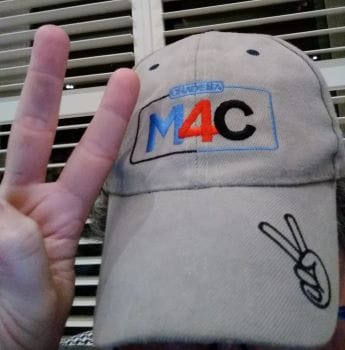Tanzania

I’ve been meaning to forward this recent piece about Tanzania. In the three plus years I managed to spend on the African continent, US and European press accounts I’ve found overwhelmingly to be not even wrong. So, this piece by the The Economist is an exception, more so if you read their previous coverage of the last two elections where they never accurately came out, as here, documenting the ruling party’s rigging and stomping of the opposition.
I was provided a perspective from the ground in 2015, when on election night, half the campaign was jailed, stopping any ability for the opposition Chadema to produce an alternative more accurate vote count — such tallying a customary campaign process for over two centuries in American elections. In the week before the election, I had made the CCM press as “the American sent to steal the election.”
Tanzania is a most beautiful country with a hard working, intelligent people. It was an honor to work with so many courageous people who have continued to struggle, including sacrificing their very lives for basic political rights and processes long afforded Americans, who today, the vast majority can’t be bothered to lift a finger or even a thought about.
Tanzania’s opposition, once flat on its back, is now on its knees
The next elections will be both uncompetitive and unfair
“The most recent Tanzanian general election, held in 2020, made a mockery of democracy. Agents of the ruling CCM party stuffed ballot boxes, pre-marked voting slips and erected fake polling stations. Police officers rounded up opposition candidates and their supporters. To hide the fraud, the authorities shut down the internet, gagged journalists and suppressed rights groups. The few opposition supporters brave enough to protest were shot at. At least 14 were killed. John Magufuli, then Tanzania’s president, duly won re-election with 84% of the vote. The CCM did even better, securing all but seven of the directly elected seats in the country’s parliament.”
Mr Magufuli eviscerated the opposition in a five-year reign of terror. The trigger was an election in 2015, when the opposition won 40% of the presidential vote and 45% of the parliamentary vote. In response, Mr Magufuli intimidated, bought off and silenced his critics. Defections from Chadema, the principal opposition party, were encouraged. The business interests of opposition members and donors were relentlessly targeted.
Those who could not be induced to defect faced arrest, or worse. Tundu Lissu, Chadema’s presidential candidate in 2020, survived after being riddled with bullets by unknown assassins. Freeman Mbowe, its chairman, was assaulted and had his leg broken. Mr Magufuli may be dead, but the chilling effect of his presidency lingers.
Worse than the fear, though, was the systematic dismantling of the opposition at a local level. In 2016 Mr Magufuli banned the opposition from holding political rallies. These allow politicians to forge connections with potential voters, particularly in villages and the countryside. More people attend political rallies in Tanzania than anywhere else in the world, as far as available statistics show, according to Dan Paget of the University of Sussex, who is writing a book on the subject. Although Mrs Samia lifted the ban last year, it had silenced the opposition across swathes of Tanzania for six years.
Perhaps the most grievous blow Mr Magufuli struck against the opposition came not in the general elections of 2020 but in the local polls the year before. The electoral commission barred 94% of Chadema candidates from standing, prompting an opposition boycott. As a result, the CCM won 99% of local seats.
Tanzania’s gdp per person is among the 30 lowest in the world. Given that the CCM has held power since independence from Britain in 1961, there must be a sizeable chunk of Tanzanians yearning for change.
It took two decades from the restoration of democracy in 1992 for the opposition to become competitive. Its emergence at national level was built on its successes in running local governments. Without a presence in parliament or local government, the opposition can hardly present itself as a government-in-waiting.
Negotiations between Chadema and the government for electoral and constitutional reforms have broken down. Mr Lissu, who opposed the talks, says that the CCM “flatly rejected” all proposals for meaningful change that Chadema put forward. “While uttering pretty phrases, she has actually been consolidating authoritarianism,” he says of Mrs Samia. Now, he fears, the CCM is intent on ensuring that local elections in December will be a repeat of those in 2019, with Chadema candidates again excluded on technicalities.
“In this gloomy view, any prospect of rebuilding and securing even 25% of the vote next year therefore looks remote. “Without electoral reform, there is no hope that we will get democracy peacefully,” says Mr Lissu. “We will have to advance our cause on the streets through demonstrations and mass action.”
Peoples Power!

